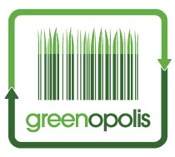15 Green Ways To Stretch Your Cleaning Dollar
Almost everyone is trying to cut back on expenses these days. And one of the most expensive items on the budget list is cleaning supplies.
If you’re like me, you’re tired of seeing your greenbacks go out the window for cleaning products, but you’re also concerned about what all those chemicals are doing to you and your family - not to mention what they’re doing to the environment.
So you might try a few of the suggestions below. By replacing even a few of your standard cleaning supplies with some greener alternatives, you can have a little extra dough in your pocket and do a little more to help the Earth.
Stretch Your Cleaning Dollar
1. Begin by assessing your product usage. Do you really need a detergent and a fabric softener? Can you get by with just one product to do both jobs? By using a smaller number of household products in smaller amounts you’ll save money and reduce your environmental impact.
2. Buy concentrates when you can. If you can find a concentrated mixture of a product you use regularly, buying a concentrate and diluting it yourself will save money. Also, you can dilute at at higher rate that most manufactures do and still have an effective product. Try mixing a 1/2 teaspoon of an all-purpose cleaner with 16 ounces of water to use for basic cleaning needs. Use 1/4 teaspoon in 16 ounces of water, and it will effectively clean your windows. Remember that an anti-bacterial agent also cleans, so you can limit your product usage to just one that will both clean and disinfect.
3. Make your own disinfecting solution. In a spray bottle, mix 1:5 parts bleach and water. Use this to clean countertops, stoves, and floors. Remember to rinse after use.
4. Keep empty spray bottles that had cleaner in them. Wash them out and reuse for your own spray cleaners.
5. Use diapers or dish towels instead of paper towels and other cleaning cloths. They’re great for cleaning, wiping up spills, and cleaning dirty faces. Then you can simply throw them in the laundry. Now you won’t be paying for something that gets thrown away and you’ll be helping the environment.
6. Clean your outdoor furniture with shaving cream. Spread the cream over the furniture surface with a sponge and let sit for a bit. Then hose it off. The cream contains soap and softeners that loosen grime so it will wash off easily. For sap stains, smear some peanut butter over the stain. Wait about 5 minutes, then hose off.
7. Use your dishwasher. Running a full load of dishes rather than washing them by hand, saves water, soap and energy.
8. Use less dishwasher detergent. You don’t have to fill the cup completely to clean effectively. Start by using a little less each time you do your dishes to see how much you really need. One tablespoon of detergent per full load should be plenty, and your dishes will be just as clean as when you use more.
9. Dilute soap for hands, bathrooms and kitchens. Whether you buy soap in those foam type dispensers or traditional soap, you can dilute it by about 1/3 and still clean effectively. As the soap is used, refill with water to help the soap last longer. You can also purchase a large refill bottle to save even more on hand and dish soap. This also helps save water, because you don't have to keep it running while you make a lather!
10. Use tea to clean your garden tools. You can skip the rust remover by brewing up some black tea. Fill a bucket with the tea and soak the tools overnight. Remove and wipe clean.
11. Use a regular broom and mop to clean your floors. Swiffer pads and cloths are very expensive. They may clean great, but you can easily substitute a dishcloth for the mopping pad, and a used dryer fabric sheet for the duster.
12. Use cooking spray to clean your grill. Skip the expensive oven cleaners and spritz your grill with cooking spray for cleaning. Turn the grill on and the grease will melt off. Never leave your grill unattended.
13. Vinegar can do almost anything. A cup of white vinegar in a sink of hot water will make your floors sparkle. Vinegar is cheap, natural and kills bacteria, mold and germs. Plus, it leaves no soap residue. And that’s just one suggestion. For more, read When Pickle Jars Attack, Using Vinegar for Nail Fungus Treatment and 5 Tips For Spring Cleaning Bliss.
14. Clean your pots with Alka-Seltzer. If your pots have burned-on food, add two Alka-Seltzer tablets to some water in the pot. Let soak for an hour or so and then rinse. They’ll also clean your jewelry. Just fill a glass with water, toss in a couple of tablets and jewelry and let soak for a couple of minutes. Rinse and dry.
15. Give up fabric softener. It’s not necessary, especially if your already using dryer fabric sheets. But you don’t really even need those. Cotton probably won’t get static in the first place, but If you get some static, especially in your polyester fabrics, just spritz with a little bit of water.
You can save a lot of money by changing just a few of your habits. But take it easy on yourself, too. It may take a while for your new habits to stick,so don’t give up.
Greenopolis.com is dedicated to our users. We focus our attention on changing the world through recycling, waste-to-energy and conservation. We reward our users for their sustainable behaviors on our website, through our Greenopolis Tracking Stations and with curbside recycling programs.
GREENOP4273

